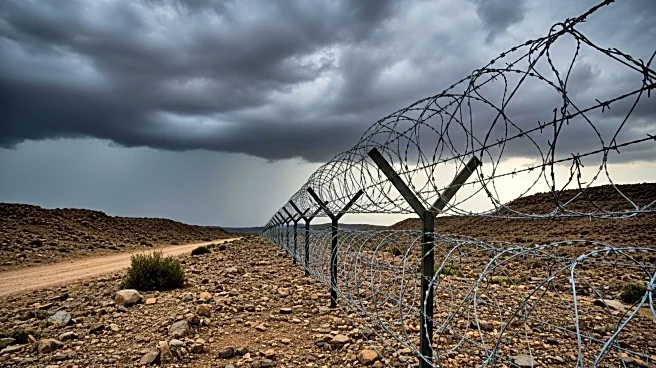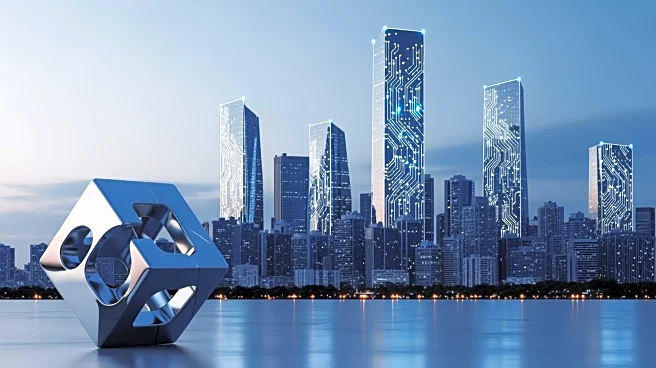What is the story about?
What's Happening?
Ukraine's military leadership has confirmed that Russian forces have entered the Dnipropetrovsk region, marking a significant development in the ongoing conflict. This central region, which has been subjected to regular shelling during Russia's full-scale invasion, had previously been spared from major ground battles. Viktor Tregubov, spokesperson for the Dnipro Operational Strategic Group of Forces, stated that fighting is currently ongoing. Moscow initially claimed in July that its forces had advanced into the region, although it has not made a formal territorial claim. The Russian military has since claimed to have captured several settlements in the area. Analysts from the Institute for the Study of War have noted unconfirmed reports from Russian military bloggers about further advances in the region.
Why It's Important?
The entry of Russian forces into the Dnipropetrovsk region represents a potential escalation in the conflict, which could have significant implications for Ukraine's defense strategy and regional stability. The region's strategic location in central Ukraine makes it a critical area for both military operations and civilian safety. The ongoing fighting could lead to increased displacement of civilians and further strain on Ukraine's military resources. Additionally, the advancement of Russian forces into new territories may complicate diplomatic efforts aimed at reaching a peace agreement. The situation underscores the challenges faced by Ukraine in defending its territory and the potential for further international involvement in the conflict.
What's Next?
The ongoing conflict in the Dnipropetrovsk region is likely to draw continued attention from international stakeholders, including NATO and the European Union, who may consider additional support measures for Ukraine. The Ukrainian military will need to assess its strategic options to counter the Russian advances and protect key territories. Diplomatic efforts may intensify, with potential summits between Ukrainian and Russian leaders to address security guarantees and territorial disputes. The situation remains fluid, and further developments could influence the broader geopolitical landscape in Eastern Europe.

















